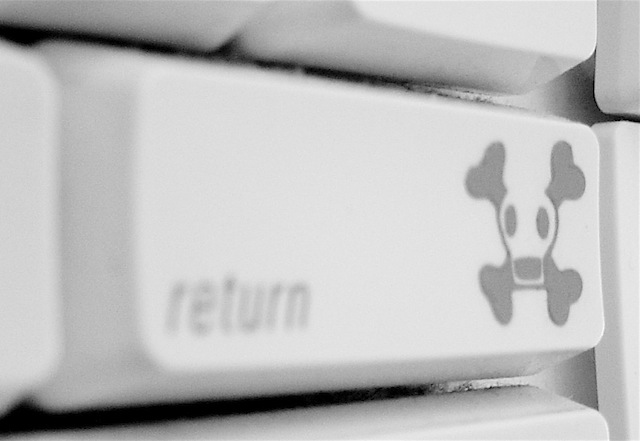A few years ago content farm Demand Media was being hailed in some quarters as the future of the media industry.
Today its stock is languishing, revenues are falling and any thought that the cheap, low quality writing that Demand Media delivered will be the future of media is laughable.
Variety magazine recently published a feature describing the of the fall of Demand Media with a focus on how Google’s changes to its search engine algorithm undermined the content farm’s busines model. Variety’s story is an interesting case study on not relying on another company for your business plan and extends the hope that low quality writing is not the future of online media.
Dodgy business
Demand media evolved from the eHow and eNom businesses, both of which relied on dubious – if not downright dishonest – online practices.
eNom was particularly irritating, basically just registering domain names around popular search terms that led to pages full of advertising that delivered nothing of value to someone searching the web for information on a topic.
It was very profitable for a while though, as Variety reports;
Early on, Demand used eNom’s 1 million generic domain names (such as “3dblurayplayers.com”) to serve up relevant ads to people searching for specific topics. These “domain parking” pages were immensely profitable, generating north of $100,000 per day, according to a former Demand exec who requested anonymity. “That’s $35 million-$40 million per year without doing any work,” the exec said.
The eHow business wasn’t any better, relying on low quality, cheap articles that only worked because they were stuffed full of the keywords that Google would base their search results on.
On January 26 2011 Demand Media went public and the criticism of both the newly listed company and Google became intense.
This story from Business Insider – which ha featured some gushing and dreadful analysis of Demand Media previously – illustrated the problem the company had of being overwhelming dependent on Google, although the writer believed Google were making too much money from content farms to really act against them.
Google’s problem with the content farms was real, the quality of search results was falling and users were finding their pages were full of low value rubbish rather than authoritative sources which opened the search giant’s core business to disruption from Microsoft’s Bing and other search engines. Something had to be done.
Jason Calacanis, whose Mahalo was a competitor to Demand Media, flagged the risks to content farms in a presentation early in February 2011, “the one rule of working with Google is don’t make them look stupid. If you make ‘The Google’ look stupid, they’ll f- you up.” He said. “eHow makes Google look stupid.”
Eventually Google decided they were sick of looking stupid and changed their algorithms and the rules for getting a page one search result suddenly changed.
Demand Media’s business was doomed from the moment Google made that change, as Variety reports;
By April 2011, third-party measurement services were reporting that the Google changes had reduced traffic to Demand sites by as much as 40%. Demand issued a statement that the reports “significantly overstated the negative impact” of the change, but the stock took a dive — plummeting 38% over two weeks — from which it has not recovered.
As Demand Media was affected, so too was the entire Search Engine Optimisation (SEO) industry where thousands of consultants found their strategies of placing low quality pages and link rich website comments now damaged their clients’ businesses.
For web surfers, Google’s change was good news as suddenly search results were relevant again.
Demand Media was, in essence, a transition business that prospered during a brief windows of opportunity that quickly closed along with the company’s prospects.
That window of opportunity was also dependent on someone else’s business strategy, which is always a dangerous position to be in.
Demand Media’s lesson is that while there are opportunities to be had in markets that are being disrupted by new technologies, there’s no guarantees those opportunities will last. What works in SEO, digital media or social marketing today may not work tomorrow.
It’s also a hopeful lesson that websites regurgitating low quality content is only a transition phase in the development of online media and that providing good, original writing and video is the best long term strategy for survival on the net.
Should that lesson be true, then it’s good news for both writers and readers.




